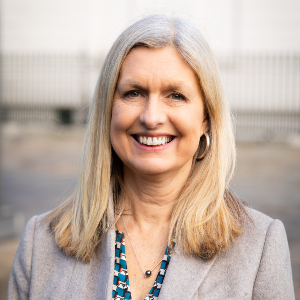
Story updated 5 August 2022
Social care waiting lists have grown by 37% in less than six months, directors have reported.
There were 542,000 people waiting for assessments, care packages, direct payments or reviews as of the end of April, found an Association of Directors of Adult Social Services (ADASS) survey, up from 396,000 in November 2021.
Releasing the survey results today, ADASS said there had been a steeper, 44%, rise in the numbers waiting for assessments over that time, from 204,000 to 295,000. Of these, 74,000 had been waiting for at least six months, up from 41,000 in November.
The figures were extrapolated from responses to a snap survey by 83 of the 152 directors, and came after most directors reported mounting levels and complexity of need and doubts that they would be able fulfil their statutory duties this year, in response to the association’s spring survey.
It also came on the day that MPs reported that adult social care needed an immediate government cash injection to stave off collapse, as well as more funding to implement next year’s funding reforms.
The mounting waiting lists also highlight the social worker shortages councils are enduring, with the numbers employed by authorities having fallen in the year to September 2021, amid rising vacancies and turnover.
The workforce gaps come with sector leaders predicting that social worker numbers would have to grow by a quarter – without mitigating action – to implement the funding reforms.
‘The picture is deteriorating rapidly’

Sarah McClinton, ADASS president from 2022-23
ADASS president Sarah McClinton said: “These new findings confirm our worst fears for adult social care. The picture is deteriorating rapidly and people in need of care and support to enable them to live full and independent lives are being left in uncertainty, dependency and pain.”
ADASS chief executive Cathie Williams cited the significant workforce shortages in the provider sector for the number of people (37,000) who were waiting for care or a direct payment.
“One big reason why almost 40,000 people are waiting for the care and support they need to actually start is that care providers simply do not have the pairs of hands they need to sustain services,” she added.
The extent of this issue was laid bare in figures released last month by Skills for Care, which showed adult social care vacancies had risen by 52% in 2021-22.
The ADASS figures also showed 210,000 people had gone over 12 months without a review of their care – contrary to the expectations of the Care Act’s statutory guidance.
This figure has remained relatively constant in successive ADASS surveys since November 2021.
Related articles
Situation ‘deteriorating day by day’
In response to the survey, British Association of Social Workers England’s national director, Maris Stratulis, said: “We desperately need government intervention and sustainable financial investment to support those in need including supporting people to remain living in their own homes and local communities. It is imperative that this national crisis is addressed as the situation is deteriorating day by day, resulting in significant wellbeing and financial pressures on individuals, carers, families and the workforce – intervention is needed now and prior to the additional winter pressures.”
NHS leaders warned that the situation in social care was having a severe impact on the health service, and on people’s lives.
‘Unacceptable’ assessment waits
The deputy chief executive of NHS Providers, Miriam Deakin, said: “The growing number of people waiting, many for more than six months, to have their needs assessed is just unacceptable.
“Long delays to assessments not only mean hold-ups to people getting the care they need, but add to the knock-on effects of wider pressures in social care on the flow of patients through the NHS.
“We need to be able to help people stay well and live independent lives in the community which would in many cases prevent, or delay, the need for hospital care.
“But chronic staff shortages, and a lack of capacity and sustainable funding, in social care also stops people being discharged from hospitals as soon as they could be to recover closer to home – adding to pressure on NHS beds and leaving ambulances queuing up outside A&E departments waiting to bring in more patients.”
Reforming adult social care ‘a priority’
In its response to the report, a Department of Health and Social Care spokesperson pointed to its investment in reforming social care.
“We have made it clear that reforming adult social care is a priority for this government and are investing £5.4bn over three years.
“This includes £3.6bn to reform the social care charging system and enable all local authorities to move towards paying providers a fair cost of care, and a further £1.7bn to begin major improvements across adult social care in England.
“We appreciate all that our incredible care workforce do and to ensure they are supported, we are providing at least £500m to invest in and develop the workforce.”
The DHSC also said the figures were a partial reflection on the state of the sector given 83 out of the 152 authorities had responded to the survey.





 Bournemouth, Christchurch and Poole
Bournemouth, Christchurch and Poole  Hampshire County Council
Hampshire County Council  Lincolnshire County Council
Lincolnshire County Council  Norfolk County Council
Norfolk County Council  Northamptonshire Children’s Trust
Northamptonshire Children’s Trust  South Gloucestershire Council
South Gloucestershire Council  Wiltshire Council
Wiltshire Council  Wokingham Borough Council
Wokingham Borough Council  Children and young people with SEND are ‘valued and prioritised’ in Wiltshire, find inspectors
Children and young people with SEND are ‘valued and prioritised’ in Wiltshire, find inspectors  How specialist refugee teams benefit young people and social workers
How specialist refugee teams benefit young people and social workers  Podcast: returning to social work after becoming a first-time parent
Podcast: returning to social work after becoming a first-time parent  Podcast: would you work for an inadequate-rated service?
Podcast: would you work for an inadequate-rated service?  Family help: one local authority’s experience of the model
Family help: one local authority’s experience of the model  Workforce Insights – showcasing a selection of the sector’s top recruiters
Workforce Insights – showcasing a selection of the sector’s top recruiters 

 Facebook
Facebook X
X LinkedIn
LinkedIn Instagram
Instagram
Comments are closed.